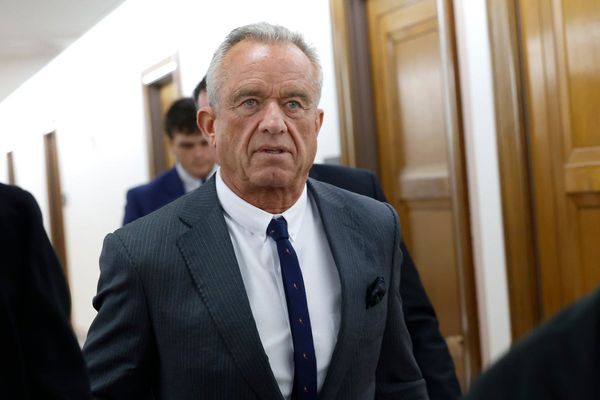
In Australia and throughout the world, powerful people break the law in letter and spirit and get away with it, again and again. Even when derelictions of duty, power abuses or crimes play out before our eyes, excuses abound about why such powerful wrongdoers can’t be held to account.
I don’t buy it. Impunity is poison to the trust needed to preserve democracy. It insults foundational democratic ideals that no one is above the law and that justice is blind. It makes voters feel foolish and played to have elected people meant to serve the public interest who end up using that power to serve their own political and financial ends, including neutering institutions and processes designed to make them accountable so democracy works.
Think about Christian Porter’s refusal to stand aside as attorney-general in the wake of historical rape allegations (which he denies). Or his perpetuation of the corruption of the AAT, the tribunal that reviews critical government decisions about critical matters like who is eligible to remain in the country and whether a pensioner is liable for a Centrelink robodebt.
Instead of restoring funding to the appointment-oversight panel specified in the AAT’s legislation so it could perform the vital role of ensuring integrity in the appointment process, he used its absence to hand out lucrative appointments to Liberal Party hacks leading to the perception they may be likely to make decisions that support the government’s case.
Or take Donald Trump’s tampering with evidence and witnesses to avoid criminal responsibility for business fraud (before he was president) — an obstruction of an official proceeding and conspiracy to defraud the United States (in the waning days of his presidency).
The high standard for criminal conviction — beyond a reasonable doubt — usually requires proof that the defendant has evil intention or has at least had enough awareness of what they were doing and its consequences to know it was wrong. The former president’s mobster talk, paranoid and delusional beliefs, habitual note-shredding, document theft, dangling of pardons and use of burner phones all thwart the requirement that investigators must prove Trump’s state of mind.
The Manhattan District Attorney’s decision to effectively drop the falsifying business records case that offered the best odds of finally getting Trump behind bars was based on this problem. Criminal law experts say that January 6 investigators are facing similar hurdles because Trump “believes whatever he wants to think and it doesn’t necessarily have to be grounded in reality”. As a result, says Jane O’Sullivan, a Georgetown University criminal law professor, it will be tough to convince a jury that “he knew any particular thing”.
Then there’s the gross impunity of a dictator like Putin, who clearly believes he’ll die in office, ensuring that as long as he doesn’t travel to a country willing to extradite him to The Hague, he’ll never stand in the dock for war crimes at the International Criminal Court.
Are democracies more vulnerable than authoritarian regimes to unchecked political corruption? Not at all. Studies make that clear, and it also makes sense. Democracies have checks on power — including an independent media — built into their foundational structure. While these can be corrupted, they exist, which is unlikely to be the case in authoritarian regimes. In Russia, for example, Vladimir Putin is the law. Those who try to oppose him, or even speak freely about vital matters of public interest like the war, risk jail or even death.
But saying we’re better than authoritarian nations at addressing political corruption is a low bar. The required integrity standard is one that supports the trust of citizens in their democracy. That’s not a standard we’re meeting in Australia right now, particularly in the federal arena where there is no anti-corruption watchdog and — relatedly — galling instances of corruption unearthed every day.
Besides stacking the AAT, these include the federal government’s multiple breaches of law and abuses of power in the secret trial of security services whistleblower Witness K, the pork-barrelling of car park and sports grant funding to marginal seats, and, most egregious of all, the cutting of the national audit office’s budget, which, in the absence of the federal ICAC they promised at the last election, is one of the few things that stands between Australians and a self-interested, fiscal free-for-all.
Which is where you come in, dear voter. The federal election may be called this weekend. Liberal democracy is under threat around the world and — when it comes to Australian democracy — the long and growing list of lies, corruption and other abuses of power is our Achilles’ heel.
Make sure you know the history and pledges of the candidates in your seat on a federal ICAC before heading to the polls, and vote D for democracy while you’re there.







